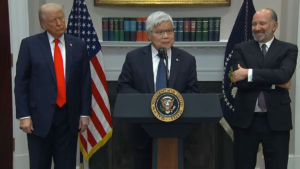The High-Stakes Game: Success and Failure in India’s Government Job Market
The allure of government jobs in India is undeniable. They offer job security, social prestige, and a relatively comfortable lifestyle. However, securing a government job is a highly competitive endeavor, with a significant disparity between the number of aspirants and the limited number of vacancies.

Factors Affecting Success
Several factors influence the success rate of securing a government job in India:
- Competitive Examinations: Government jobs are primarily secured through competitive examinations conducted by various recruiting bodies such as the Union Public Service Commission (UPSC), Staff Selection Commission (SSC), and Railway Recruitment Boards (RRBs). These exams are notoriously tough, requiring rigorous preparation and a deep understanding of the syllabus.
- Reservation Policies: India’s reservation system, designed to provide opportunities to marginalized communities, can significantly impact the competition. While it aims to promote social justice, it can also intensify competition among general category candidates.
- Economic Disparity: Economic disparities across regions can influence access to quality education and coaching, which are crucial for exam preparation. Candidates from affluent backgrounds often have better access to resources, giving them an advantage.
- Political Influence: In some cases, political connections can play a role in securing government jobs, particularly in lower-level positions. However, this is less prevalent in higher-level positions that are filled through competitive exams.
The Success Ratio: A Statistical Perspective
While precise data on the overall success rate of government job aspirants is difficult to obtain, it is generally acknowledged that the success ratio is relatively low. Factors like the number of vacancies, the level of competition, and the specific exam contribute to this.
The Human Cost of Failure
The intense competition for government jobs can take a significant toll on the mental and emotional health of aspirants. Many individuals spend years preparing for these exams, sacrificing personal and social life. Failure can lead to feelings of disappointment, frustration, and even depression.
Conclusion
Securing a government job in India remains a dream for many, but the reality is harsh. The intense competition, coupled with various socio-economic factors, makes it a challenging endeavor. While the government has taken steps to streamline the recruitment process and enhance transparency, there is still a long way to go to ensure fair and equitable opportunities for all.










